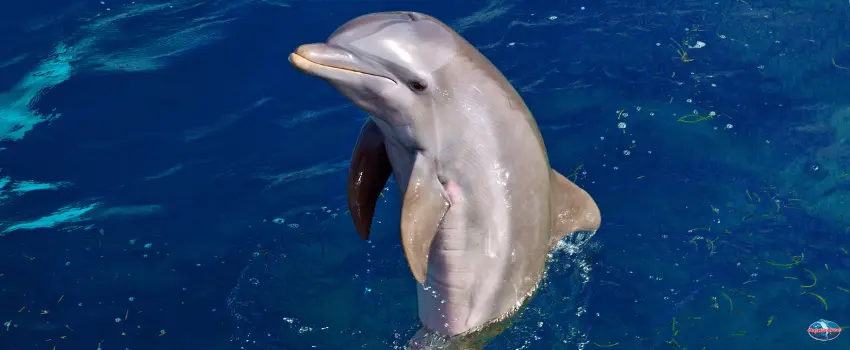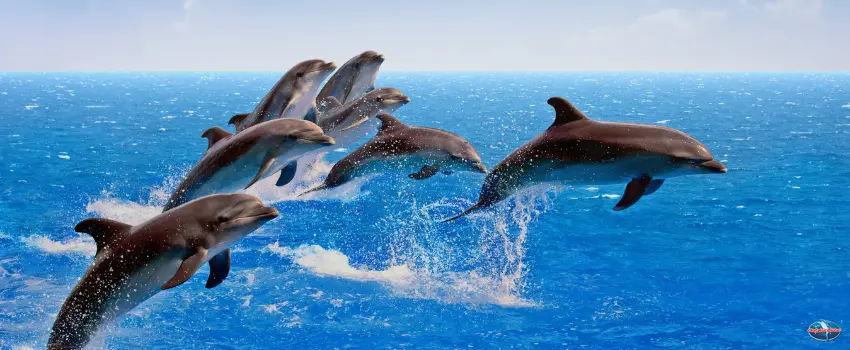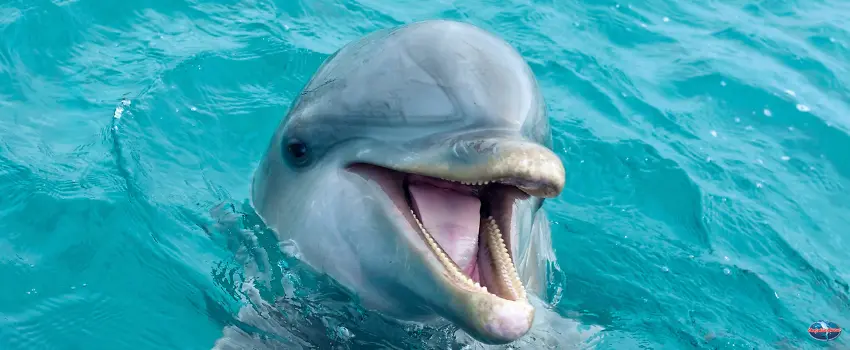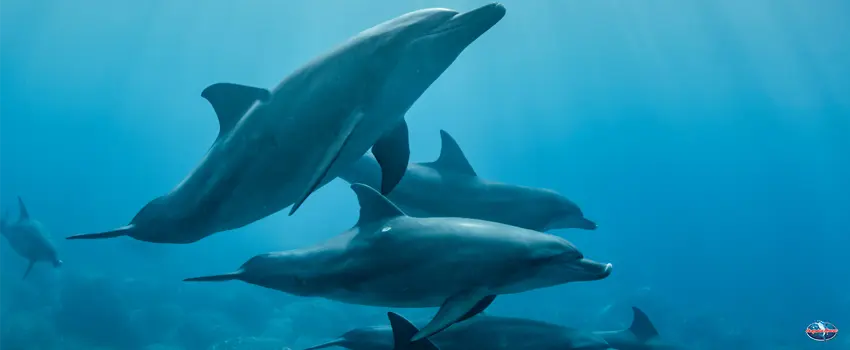Dolphin sightings draw visitors from around the world to St. Petersburg, Florida. The majestic mammals breach the surface of the water to perform acrobatic feats and swim alongside vessels as if to say hello. As much as they are a draw for tourists, for many global cultures, the dolphin symbolizes everything from peace to divine fortune.
What makes a dolphin special enough to be worthy of reverence? The significance of dolphins to humanity cannot be understated, proven by the role they play in diverse cultures in every corner of the world.
In Ye Olde Times

Sailors were superstitious by nature, reading the stars and what we may call “vibes” of the sea like a map. Even pirates took signs from nature as blessings or warnings. Further back, dolphins have been recorded in paintings from 1500 B.C., portrayed as signs of good luck.
In Greek Mythology, the god of the sea, Poseidon, is often depicted surrounded by dolphins. Acting as his messengers, dolphins were even responsible for collecting his wife for him. Due to their loyalty and helpfulness, Poseidon gave them a constellation of their own known as Delphinus. Aphrodite and Dionysus also were seen with dolphins, the former using them as transportation. Dionysus is said to have turned a band of pirates into dolphins and commanded that they do good for humans in trouble at sea, rescuing those who may otherwise drown.
Pirates had their own ideas about what a dolphin symbolized. Seeing a dolphin meant calm waters, and if they traveled alongside the boat, the crew was sure to make it to a safe harbor. Harming a dolphin was tantamount to harming an albatross. In other words, it brought about bad luck.
Mythical Creatures to Some

Dolphins all around the world, with a few exceptions, are seen as something akin to divine. In a few places, they are elevated to the realm of the spiritual.
In Hindu mythology, a specific species of dolphin, known as the Ganges River Dolphin, is believed to be the chariot that brought the deity of the Ganges River to earth. Ganga, the namesake of the famous river, rides the Makara — a Ganges River Dolphin — in most imagery associated with her.
In the Amazon River, Boto dolphins are given a mystical aura by the native people. Thought to be capable of bearing children with human women, the Amazon river dolphins are believed to be shapeshifters. Imagine a dolphin swimming to shore only to walk out on two human feet! This takes interacting with dolphins to a whole new level.
Ancient Romans believed that dolphins carried the souls of the dead to the Islands of the Blessed. This is due in part to their belief that dolphins reflected the cycle of life, from birth to death.
Similar legends of interacting with dolphins appear in Christianity as well. Saint Martin, a hermit who, for some reason, once was tempted by a woman, is said to have escaped the throes of his lust on the back of a dolphin that took him to an island in seclusion. Later, when a woman arrived on the island, it took two dolphins to carry him away from the dangers of finding love.
Not-So-Friendly Seas

Of course, not all cultures revere the dolphin. Some see the dolphin as a resource. Japan is known for its highly criticized annual dolphin hunts, much to the ire of animal rights activists and dolphin lovers around the world.
A more mythical tale of dolphin disrespect involved Pelorus Jack. In the 19th century, Pelorus Jack would appear to guide ships through the often rough waters off the coast of Tasmania. The friendly dolphin was seen as a good luck charm by local captains, who followed the helpful dolphin with absolute trust in his abilities to steer them.
One ship ruined the relationship between themselves and Pelorus Jack. It’s said that a drunk passenger on a particular ship shot Jack, causing him to flee. From that moment on, Jack did not guide that single ship in particular, and sure enough, the ship sank among the rocks of the strait.
A Lesson Learned
It’s not hard to like dolphins. After all, they’re friendly, playful, and, above all, cute. Natural dolphin behavior engenders us to find pleasure in their presence. There are also lessons to be learned from how diverse cultures spring up around dolphins in the wild.
Stewardship of the oceans is key to maintaining a healthy dolphin population. The tale of Pelorus Jack offers insight into the consequences of disrespecting our water-borne friends. Maybe revering them as deities isn’t necessary to simply be a good visitor to the world’s oceans.
Further, studying and understanding dolphin behavior can make us better ocean stewards. The Amazon River dolphins, for instance, are unique to their environment. Should that environment disappear, so too would the fertile shape-shifting dolphins.
Viewing dolphins from the safety of a boat under the careful guidance of trained professionals is the best way to view them. Aboard the Dolphin Quest, the most captivating dolphin cruise in Madeira Beach, our trained experts can deliver information and point out interesting facts. They do so while interacting with dolphins from a safe distance.
Choosing a responsible host, wherever you are in the world, is worth a little research before paying for a tour. After all, what are dolphins known for other than being friendly? Being friendly, in turn, is the least we can do.











